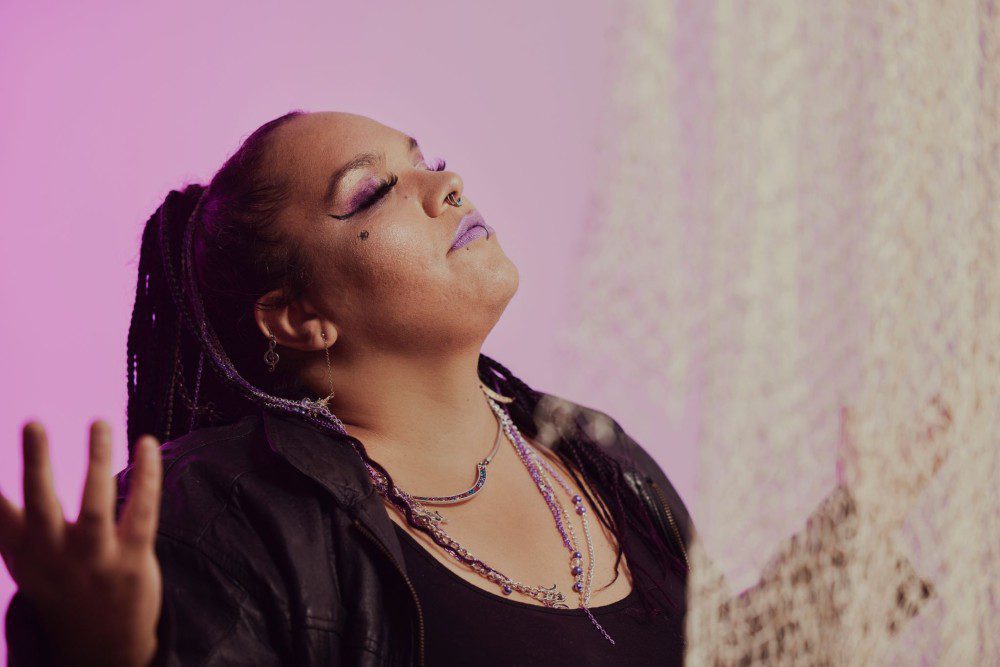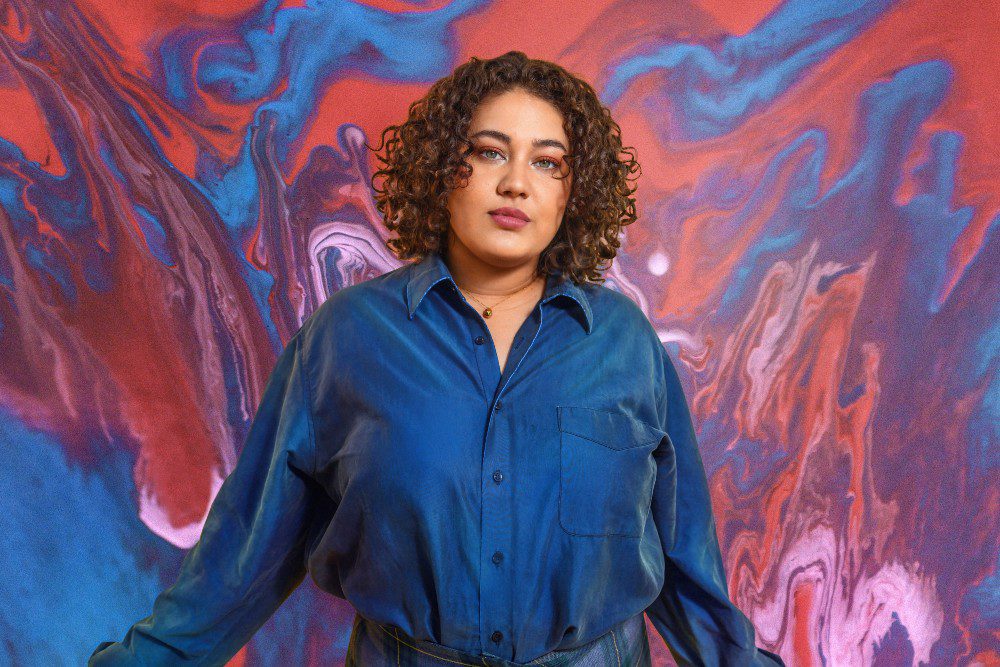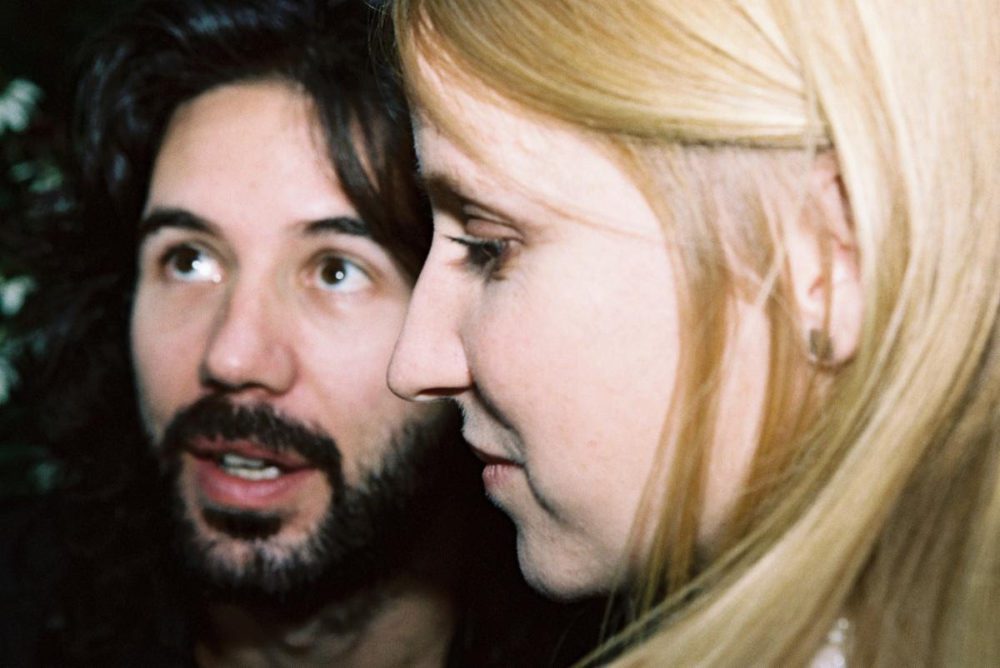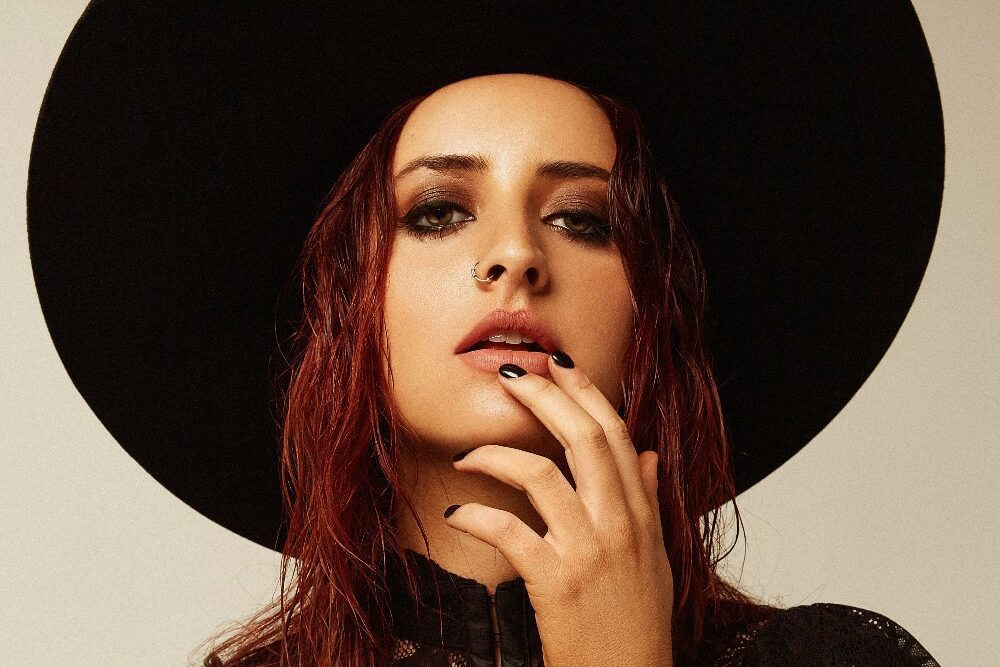

As Lady Lash, South Australian artist Crystal Clyne (née Mastosavvas) translates elements of hip hop, R&B, soul, and electro into a language all her own. On her fifth album, Spiritual Misfit (out November 22 via Heavy Machinery Records), she pushes back on the expectations on her as a woman, a mother, and an artist; the sonic mood of the album is a distinct shift from her primarily beats-driven, hip hop roots. “This album, I feel, was in the frequencies of my alien brain, coming from hip hop to this completely other sound. I feel it’s a journey through light and dark worlds, exploring who you are outside of society’s boxes, not being afraid to change and evolve,” she tells Audiofemme.
When she started writing the album, she recalls thinking, “There’s something happening here;” that was nearly two years ago. “I felt like I was moving into this different musical frequency in my brain, and I had to step away from hip hop for a bit. The first song that came out… was ‘Love My Darkness,’ which began as a straight guitar track, very simple.”
Last year, Clyne received funding and creative support from the Victorian Government and City of Melbourne’s joint initiative, Flash Forward, allowing her to transition the songs she’d been working on into an album. Her co-producers, composer and artist Miles Brown and Wiradjuri studio engineer/experimental interdisciplinary artist Naretha Williams, were supportive of Clyne’s intuition that “Love My Darkness” needed more “edge” and more feeling. Brown added the synths and bass to flesh it out, and the result is a full-bodied, immersive tour de force.
The song was the first of nine tracks that pay a creative homage to her psychological and spiritual hurting and healing over the past few years. “Through my life I’ve been in domestic violence relationships and the trauma that sits deep within your liver, your heart, your soul, it was a massive journey for me,” she reveals, now having overcome problematic drinking habits and broken free of damaging relationships. “I’d also given birth to my third child and I felt a massive shift, a massive rebirth and I wanted to be more poetic in the lyrical content, but also understanding myself, because it is therapy when I write. It’s like a diary of my life.”
Lady Lash is no stranger to establishing her own identity through making sense of various languages of speech, song and family. She spent her teenage years on Koonibba mission in South Australia with her family, of both Greek and Indigenous Kokatha descent. These two ancient cultures have at least one obvious cultural commonality: a love for the ocean and an appreciation of it as both a source of life and beauty. Her earliest memories are of playing with her brothers and sisters on her dad’s boat.
Her albums have harked back to the ocean and family, not the least in their titles. Her debut EP Pearl came out in May 2010, followed by Crystal Mercy: The Fisherman’s Daughter in 2013. It honoured her father, whose family migrated from the Greek villages of Siana and Kritinia on the island of Rhodes. Her grandfather, Bapoul George Clyne, was born in Ceduna in South Australia, later becoming a fisherman. Samuel, his son, met and married Theresa Ware, and Crystal is the first of their six children.
It was a far cry from the seaside coast of Adelaide to Melbourne, where she moved in 2009. The hip hop scene in this city is strong and she was a fresh talent, energised and intelligent. When she dropped Pearl in 2010, it drew critical acclaim. She was nominated for a Deadly Award, won Redfern Records‘ “Female of the Year” award, and was invited to perform at the One Movement Festival in Perth. When she released her debut LP, the awards kept coming: a VIPA (Victorian Indigenous Performer Awards) for Most Promising Act of 2013 and a nomination for “Best Indigenous Act” at The Age Music Victoria Awards of 2016.
The references to the natural world made way for the cosmic with second album Milky Way in 2015. From the oceanic to the interplanetary, she then took a 180 degree spin and came plummeting back into her own psyche for Therapy Tapes in 2018, exploring themes of transporting her consciousness beyond her physical body to take in the world from a far-distant view, whether from beyond the Earth or looking back into today from a day centuries in the future.
On it, she had fully embraced a jazzy boom-bap vibe. It’s a flowing, melodic adventure that sounds like a pared back Lauryn Hill on tracks like “Self Love,” in which she depicts the crystals on her windowsill, the dreamcatcher nearby as she meditates. “Organic Domes” reveals her struggle with loneliness, being in a place with “no friends,” and trying to imagine an escape through the sensation of flying.
Her focus is more earthy and introspective on Spiritual Misfit, where Clyne has morphed her sound palette again to introduce synth-pop, sultry beats, and echoey, almost New Age ambient soundscapes. She is not the fierce MC on The Fisherman’s Daughter. She is a dramatic pop singer – sounding like the lovechild of Adele and Florence Welch on tracks like “Love My Darkness.”
On “Mother’s Cries,” Clyne channels her newfound sensation of being both a mother and a grandmother (her daughter gave birth last year). On the track, fellow artist and friend Katarina Stevens plays the bağlama, a stringed instrument traditionally used in classical Ottoman and Turkish folk music. It was at the peak of Clyne’s darkest period during COVID that circumstances conspired to bring the two women together.
“She’s another Greek sister and we connected through Facebook last year. I’d just separated from my husband of many years during COVID and I was in such a dark place,” she recalls. Stevens messaged her in response to Clyne’s post about suffering and feeling alone. “After that, things evolved to understanding that she’s a Greek artist playing these amazing instruments.” Once the sketch of “Mother’s Cries” had formed, Clyne sent over the skeleton and Stevens laid her bağlama over it.
“As I was writing it, I wanted to write about a woman understanding her ancient voice: a witch, a goddess, an empress. I wanted the sound to be big and to use all my vocals to project it out and let people feel the strength of a goddess that sings to the universe, that sings to Mother Earth,” Lady Lash explains. “Adding the bağlama, I felt the Greek side of me and the Aboriginal side of me coming together and using that in a powerful way.”
Follow Lady Lash on Instagram and Facebook for ongoing updates.




